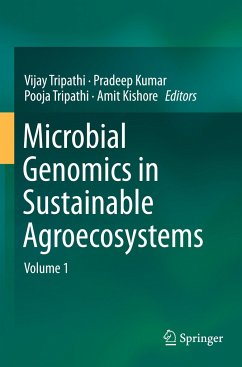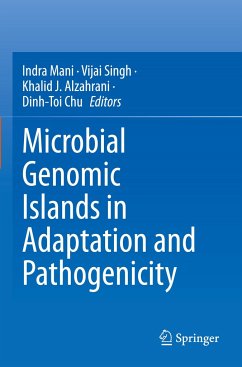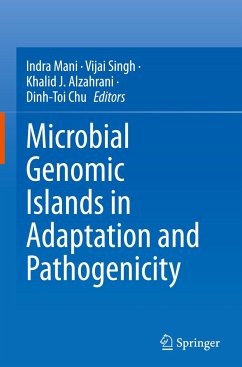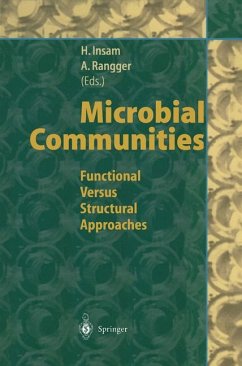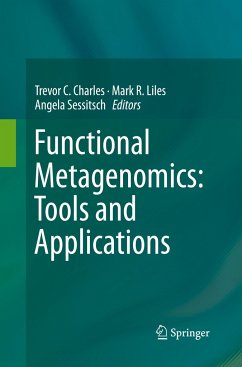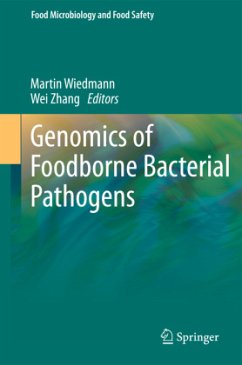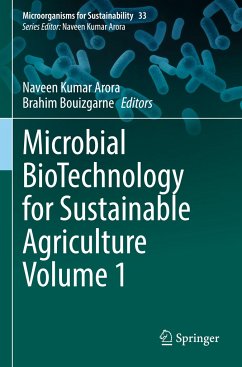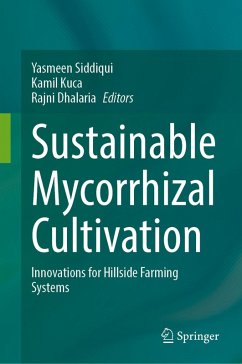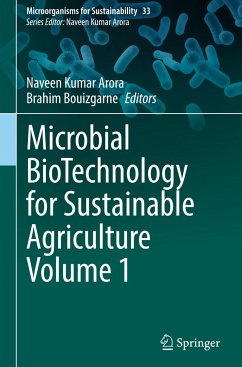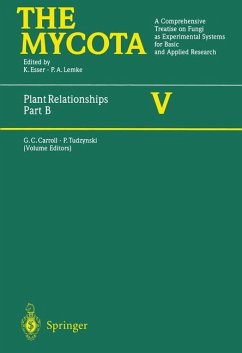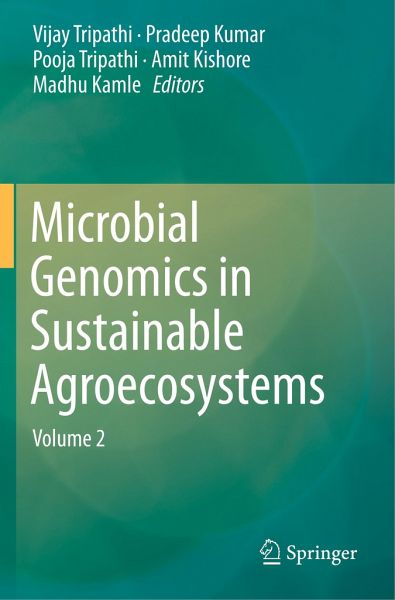
Microbial Genomics in Sustainable Agroecosystems
Volume 2
Herausgegeben: Tripathi, Vijay; Kumar, Pradeep; Tripathi, Pooja; Kishore, Amit; Kamle, Madhu
Versandkostenfrei!
Versandfertig in 6-10 Tagen
76,99 €
inkl. MwSt.

PAYBACK Punkte
38 °P sammeln!
Today, microbiology is a rapidly growing discipline in the life sciences, and the technologies are evolving on a virtually daily basis. Next-generation sequencing technologies have revolutionized microbial analysis, and can help us understand the biology and genomic diversity of various bacterial species with significant impacts on agro-ecosystems. In addition, advances in molecular biology and microbiology techniques hold the potential to improve the productivity and sustainability of agriculture and forestry.This new volume addresses the role of microbial genomics in understanding the living...
Today, microbiology is a rapidly growing discipline in the life sciences, and the technologies are evolving on a virtually daily basis. Next-generation sequencing technologies have revolutionized microbial analysis, and can help us understand the biology and genomic diversity of various bacterial species with significant impacts on agro-ecosystems. In addition, advances in molecular biology and microbiology techniques hold the potential to improve the productivity and sustainability of agriculture and forestry.
This new volume addresses the role of microbial genomics in understanding the living systems that exist in the soil and their interactions with plants, an aspect that is also important for crop improvement. The topics covered focus on a deeper and clearer understanding of how microbes cause diseases, the genome-based development of novel antibacterial agents and vaccines, and the role of microbial genomics in crop improvement and agroforestry. Givenits scope, the book offers a valuable resource for researchers and students of agriculture and infectious biology.
This new volume addresses the role of microbial genomics in understanding the living systems that exist in the soil and their interactions with plants, an aspect that is also important for crop improvement. The topics covered focus on a deeper and clearer understanding of how microbes cause diseases, the genome-based development of novel antibacterial agents and vaccines, and the role of microbial genomics in crop improvement and agroforestry. Givenits scope, the book offers a valuable resource for researchers and students of agriculture and infectious biology.



